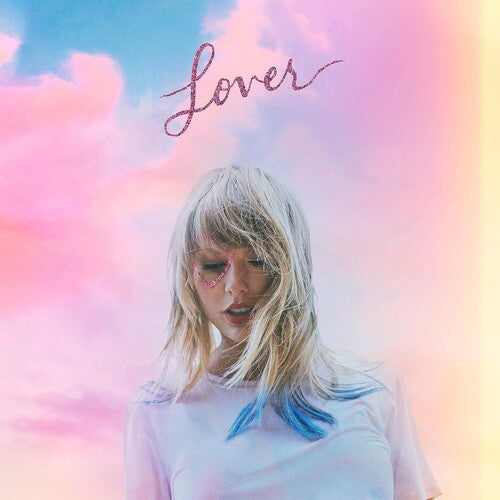Vinyl Veritas
Taylor Swift - Lover
Taylor Swift - Lover
Couldn't load pickup availability
From Allmusic guide:
Taylor Swift sings "If I was a man, I'd be The Man" on a song that arrives just as Lover, her seventh studio album, starts to get underway. It's not bragging if it's true. Perhaps 2017's Reputation didn't dominate the popular consciousness the way her 2014 pop breakthrough 1989 did, but that was partially by design. Hard and steely, Reputation announced the arrival of an adult Taylor -- a conscious maturation that didn't bother disguising its seams. Lover, in contrast, is a bit messier, almost defiantly so. Swift retains Jack Antonoff -- the former fun. captain who has been at her side since 2014's 1989 -- as her chief collaborator, and while the duo remains besotted by the chillier aspects of late '80s synth pop, not everything here plays like a sleek, sexy update on T'Pau. Certainly, "The Archer" basks within the glow of its retro analog synths, dredging up memories of both "Out of the Woods" and "Heart and Soul," yet its iciness isn't the primary color on Lover. Swift does return to this glassiness on occasion, warming its chill on the mini-epic "Miss Americana & The Heartbreak Prince," but Lover is bright, lively, and openhearted, encompassing a full range of human emotion. Happily, this includes a hefty dose of silliness: never mind the effervescence of "Paper Rings," the closest thing to pure bubblegum Taylor has ever recorded, the inclusion of a spoken introduction from Idris Elba on "London Boy" is giddily goofy. Swift smartly balances these pieces of pure pop with songs that tap into a deep reservoir of complex feelings. Listen closely to "The Man," and it becomes clear the song is neither a boast nor a manifesto but rather a bit of clear-eyed anger at institutional sexism. "The Man" isn't the only place where Swift tackles political issues. On "You Need to Calm Down," she offers an anthem for allies, writing a manifesto that is perhaps a bit too on the nose, but that directness can be an asset. Witness "Soon You'll Get Better," a quivering and candid prayer for healing where she's assisted by the Dixie Chicks; her pleas for her ailing loved one to get better are all the more affecting by being affectless. Swiftian scholars could argue "Soon You'll Get Better" is written for her mother, just like "I Forgot That You Existed" is a riposte against some unnamed online critic, but decoding the inspirations behind Lover diminishes an album so generous and colorful. More than either 1989 or Reputation, Lover seems fully realized and mature: Swift is embracing all aspects of her personality, from the hopeful dreamer to the coolly controlled craftsman, resulting in a record that's simultaneously familiar and surprising.
Shipping & Returns
Shipping & Returns
Share


